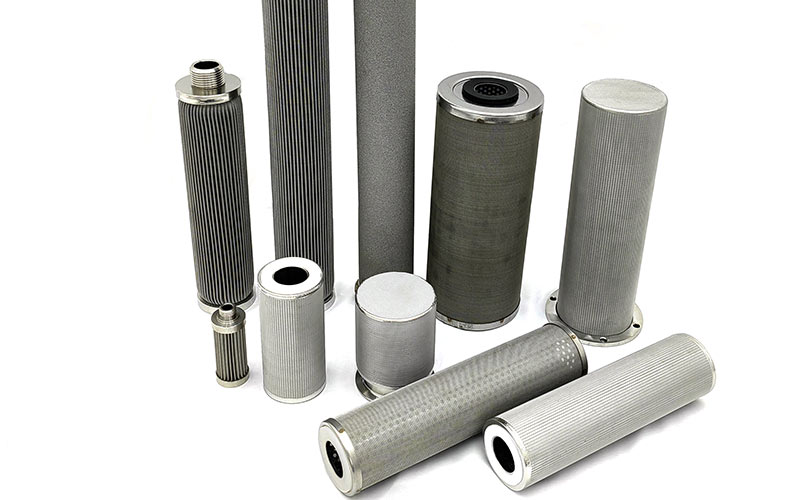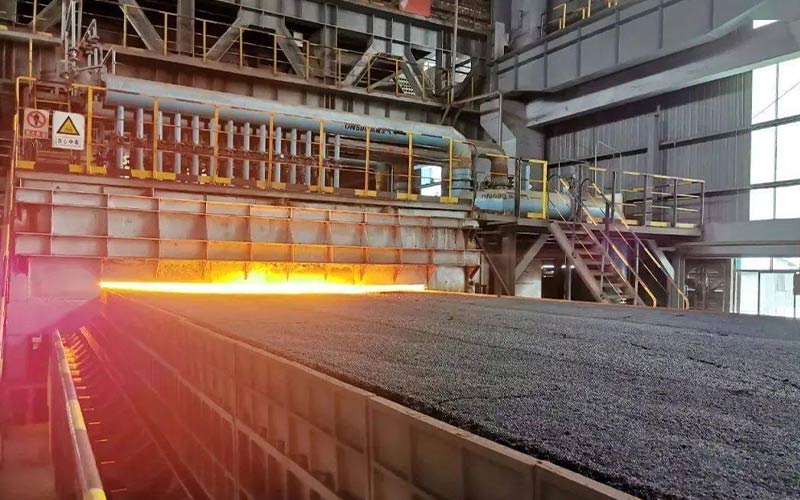Classification of filters and their industrial applications
Many industries rely on filtration as an essential process to separate solids from liquids or gases. Filtration is used in water treatment, oil and gas, pharmaceuticals, and food processing to maintain purity, protect equipment, and reduce environmental impact. Each industrial need requires a unique filtration method, which can be gravity, pressure, vacuum, centrifugal, or membrane filtration. Choosing the right filtration solution depends heavily on mastering the different techniques.

Introduction to filtration
Filtration is the process of separating solids from liquids or gases using porous media.
The process serves as a vital technique used by many industries for water treatment and oil and gas operations, as well as pharmaceutical production and food processing applications.
Industrial filtration is a diverse and extensive process that requires a variety of tools and equipment to achieve successful separation and purification results. Industrial filtration processes use plate and frame filters along with polymer and self-cleaning filters, as well as bag and basket filters and various industrial screens.
The industrial sector relies heavily on filtration for a number of key reasons:
1. Filtration effectively removes all types of impurities from flowing substances to maintain their quality and purity.
2. Equipment protection relies on filtration to prevent solid particles from building up inside machinery, causing damage and reduced performance.
3. Filtration is a method of removing pollutants and hazardous substances from wastewater and air emissions, helping to reduce environmental damage.
4. Health and safety: Filtration is essential in maintaining clean and safe environments, especially in industries like healthcare and pharmaceuticals.
Types of filtration

A variety of filtering methods are available to meet different industrial requirements in different operating environments. Here are some common types:
1. Gravity Filtration
The basic and most common filtration technique is known as gravity filtration.
The filtration process relies on gravity to draw the liquid or gas through the filter medium.
The filter medium is either cloth, paper, or granular material.
Laboratories use gravity filtration as a method of separating solids from liquids.
This method is low cost and easy to operate, but the filtration speed is slow and not suitable for applications requiring the removal of high purity or fine particles.
2. Pressure filtration
The application of pressure is used to force liquid or gas through filter media during the pressure filtration process.
Pressure filtration serves industrial needs by providing fast filtration rates.
The process of pressure filtration requires either filter presses, filter cartridges, or membrane filters to achieve its objective.
The method achieves faster filtration rates and improves parameter control yet adopts a higher operating expense than gravity filtration.
3. Vacuum filtration
The use of vacuum pumps in pressure filtration makes vacuum filtration possible.
The method is used when fast filtration rates are required and the substance needs to pass through the filter medium.
Vacuum filtration is used in laboratories and industry to extract solids from liquids.
The filtration method is fast and effective, although it requires a vacuum pump and additional equipment.
4. Centrifugal filtration
Centrifugal filtration uses centrifugal force to achieve solid-liquid or solid-gas separation.
The rotating drum or conical vessel holds the mixture, which is subjected to centrifugal force that pushes the heavier solids towards the walls while allowing the liquid or gas to pass through the filter media.
The wastewater treatment and oil refining industries use centrifugal filtration as their primary separation method.
The filtration method provides rapid results, achieving effective separation between solids and liquid or gaseous substances, but at a higher operating cost.
5. Membrane filtration
Membrane filtration is a specialized filtration method that uses membranes as the filtering component.
The membrane contains tiny pores that allow certain particle sizes to be filtered while blocking others to create a separation between solids and liquids or gases.
Membrane filtration is used as a standard filtration method in water treatment, pharmaceutical, and food processing plants.
This filtration method can efficiently remove fine particles and microorganisms and accurately control the size of the filtered particles, but it requires specialized membranes and equipment, which are costly.
Applications of filtration
The use of filtration techniques serves many industrial and application purposes.

The following list illustrates typical filtration applications:
1. Water treatment
The water treatment infrastructure relies heavily on filtration as a critical stage to remove impurities combined with suspended solids and microorganisms from the collected water.
The process of filtration maintains the safety of drinking water while improving its quality and preventing the transmission of disease through water.
2. Oil and gas industry
The oil and gas industry relies on filtration to remove solid contaminants such as sand and sediment from crude oil and natural gas.
The filtration process both ensures equipment operation and enables product purity while preventing equipment blockage.
3. Pharmaceutical industry
The pharmaceutical industry relies on filtration technology to perform various processes such as API purification, liquid and gas sterilization, and particulate removal from drug formulations.
4. Food and beverage processing
The food and beverage industry relies heavily on filtration processes to remove contaminants and deliver higher quality products, along with clarification of liquid substances.
The food and beverage industry uses the process for juice clarification, beer and wine filtration, and the removal of contaminants from edible oils.
5. Air filtration
Maintaining a clean and healthy indoor environment requires the use of air filtration systems.
The technology works in HVAC systems, clean rooms, and industrial plants to extract airborne particles, allergens, and pollutants, improving air quality and protecting human health.
Conclusion
The process of filtration is a fundamental method used by many industries to separate solids from liquids and gases. Such separation methods remain essential because their use ensures both material purity and operational efficiency and safety standards in various industrial sectors. The choice of filtration technique depends on process requirements and includes gravity, pressure, vacuum, centrifugal, and membrane filtration.
Understanding the strengths and weaknesses of filtration methods enables industries to select the best solution for their requirements and achieve optimum results.
Of course, as a leading industrial filter manufacturer headquartered in China, Lvyuan is committed to providing viable customized filter products for customers in various industries. Our team provides expert advice through our qualified filtration experts alongside our engineering specialists.We work with customers to develop a complete understanding of their filtration specifications.Through expert advice, customers receive tailored solutions by selecting the correct materials and pore sizes.
If you have such needs, we warmly welcome you to visit Lvyuan's official website for further understanding and consultation.

What is Sintered Metal Filter? Complete Guide by Lvyuan

Sintered PTFE Filters: Advanced Filtration for Demanding Environments

Metal Sintered Filters: Precision Filtering to Drive Industrial Upgrading

Choosing Sintered Filters: An Overview for Industrial Applications

What is a Sintered Metal Filter Disc? A Comprehensive Guide

What Are Sintered Metal Filters and How Do They Work?
Porous Plastic Filter
Can sintered porous filter discs be customized?
Yes, sintered porous filter discs are highly customizable. You can specify pore sizes, material preferences, disc diameter, and other parameters to meet the unique requirements of your application.
Stainless Steel Pleated Filter Cartridges
What is a Stainless Steel Pleated Filter Cartridge?
A Stainless Steel Pleated Filter Cartridge is a filtration device with a pleated design, made from high-quality stainless steel (SS 304 or SS 316L). It is used for efficient particle removal in various industrial applications.
Sintered Metal Filters
What materials are used in sintered metal filter?
Sintered metal filters are typically made from stainless steel, such as 304 or 316, due to its corrosion resistance and durability. Other alloys, like Hastelloy or Inconel, may also be used based on specific application requirements.
Sintered Titanium Filters
What Micron Ratings Are Available for Sintered Titanium Filters?
Sintered titanium filters are available in a wide range of micron ratings and configurations, offering tailored solutions for optimal performance across diverse applications.
Sintered Metal Filter
What is the cleaning process for industrial sintered metal filter cartridges?
Cleaning methods include backwashing, ultrasonic cleaning, chemical cleaning, or a combination of these, depending on the type of contaminants and the cartridge material.

Sintered powder metal filters
Sintered powder metal filters are crafted from compressed and sintered metal powders, forming a porous structure. Porosity: 28%-50% Permeability: 0.02-20L/cm²minPa Pressure Resistance: 0.5Mpa Temperature Resistance: Less than 280℃

Bag filter housing
Bag filter housings are essential components in industrial filtration systems, designed to remove contaminants from liquids. To enhance the functionality and efficiency of bag filter housings, various features can be incorporated.

Sintered wire mesh filter
Benefit from outstanding high-pressure resistance and consistent filtration efficiency with Lvyuan's sintered metal mesh. Our sintered wire mesh finds versatile applications in diffuser screens, centrifuges, breather vents, fluidized beds, chromatography, polymer processing, petrochemical industries, hydraulic filters, and more.

Stainless steel multi cartridge filter housing
Discover unparalleled filtration efficiency with our Stainless Steel Multi Cartridge Filter Housing – a testament to precision engineering and reliability.

Sanitary filter housing
This filter housing will allow you to filter large volumes of nanoemulsion with ease. Sanitary vent and drain valves permit easy venting, draining, sampling, or integrity testing operations. The new cartridge locking design features additional cut-outs for traditional half-moon portions of the Code 7 bayonet locks, enhancing clean ability and drain ability.

stainless steel filter water
Lvyuan’s sintered stainless steel filter stands as a pivotal filtration element crafted through a meticulous sintering process, with stainless steel serving as the core material.

Stainless steel pleated filter cartridge
Lvyuan Stainless Steel Pleat Filter Cartridge constructed from high-quality SS 304 or SS 316L material, this filter exhibits exceptional resistance to high temperatures and rust.

Stainless Steel Duplex filter housing
As the manufacturer, we offer a comprehensive range of Duplex Filter Housings designed to provide efficient and reliable filtration solutions for various industrial applications.
© 2024 Lvyuan All Rights Reserved. | Privacy policy • Terms and conditions
